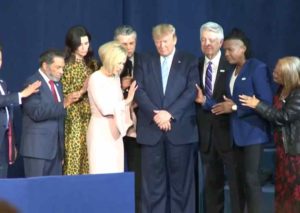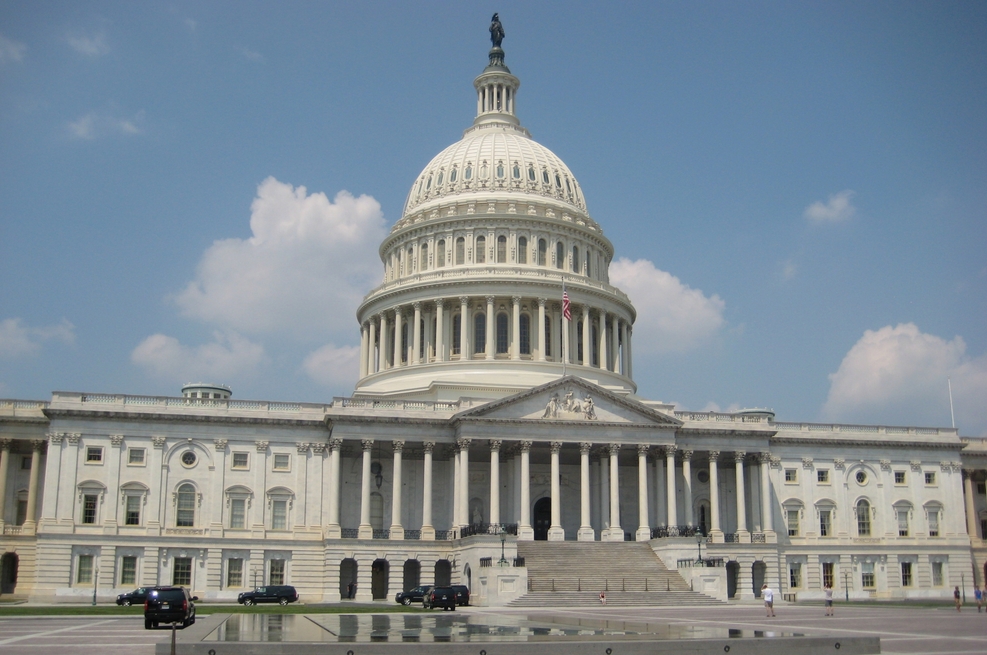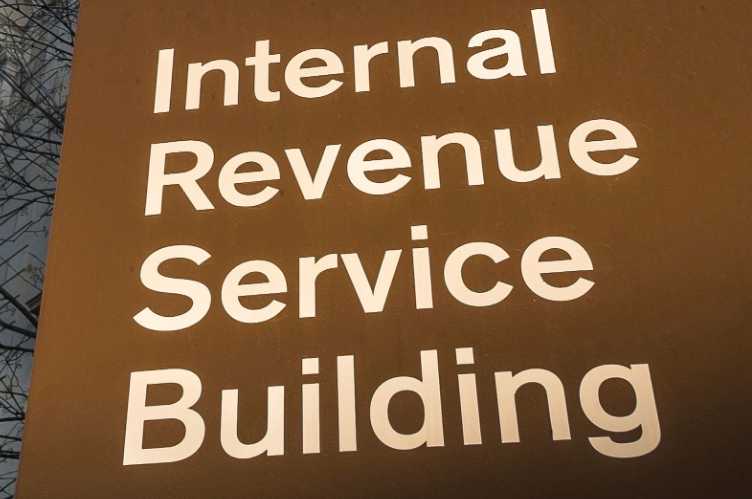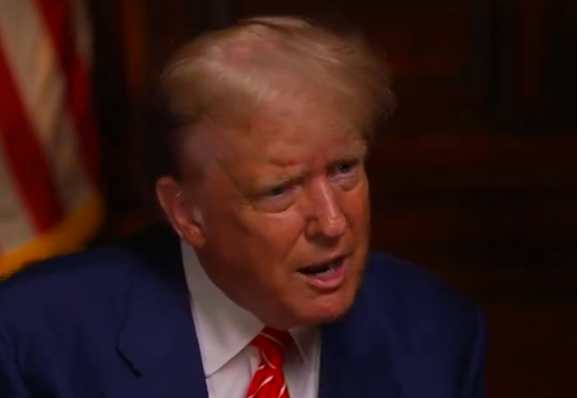 WASHINGTON – President Donald Trump is calling on the nation’s governors to immediately reopen churches, synagogues, mosques and other houses of worship, characterizing them as “essential places that provide essential services” during the pandemic.
WASHINGTON – President Donald Trump is calling on the nation’s governors to immediately reopen churches, synagogues, mosques and other houses of worship, characterizing them as “essential places that provide essential services” during the pandemic.
“At my direction, the Centers for Disease Control and Prevention is issuing guidance for communities of faith,” Trump said Friday.
Trump admonished governors who have “deemed liquor stores and abortion clinics as essential but have left out churches and other houses of worship” and threatened to override any governors who continue to keep houses of worship closed for safety reasons.
“Ministers, pastors, rabbis, imams and others faith leaders will make sure that their congregations are safe as they gather and pray,” Trump said. The CDC guidelines include guidance for disinfecting houses of worship and how to modify religious services.
The announcement is lauded by First Liberty, an organization that defends religious freedom.
“This is what the faithful of America have been waiting for some time, to see some leadership from somewhere, say that the First Amendment is not dead or sick, said Jeremy Dys, First Liberty Special Counsel.
Cool reception
While Trump claimed that Americans are “demanding to go to church and synagogue or their mosque,” religious communities are reacting cautiously to the president’s announcement.
The National Council of Churches called the decision to reopen too soon “irresponsible.”
[content id=”79272″]
“All of the advice that we’ve received from members of the CDC, to church leaders, all the way across the board, is saying there is no reason that we should be opening worship services yet, it’s just too dangerous,” said Rev. Steven D. Martin, the council’s director of communications.
Martin said to offer the opportunity to worship collectively at this time is irresponsible.
“It puts vulnerable people at risk, it puts the elderly at risk,” he added.
Trump’s call to reopen houses of worship is also unlikely to change plans of American Muslims who are celebrating Eid al-Fitr to mark the end of the Ramadan fasting month this weekend.
“American Muslim scholars and community leaders have already determined that mosques will not be open in the near future because of the health concerns brought on by the pandemic. That’s a determination for them to make not for the president to make,” said Ibrahim Hooper, communications director of the Council on American – Islamic Relations, the nation’s largest Muslim civil rights and advocacy organization.
While some mosques including the Islamic Society of Greater Houston have already announced limited opening within the next weeks, Hooper said most communities will not change their plans based on the president’s announcement.
“I don’t anticipate any mosques changing plans based on what was said by the guy who launched the Muslim ban,” Hooper said
Data from Nationscape, a survey run by the Democracy Fund and University of California, Los Angeles suggests that fewer than half (48 percent) of religiously affiliated Americans who attended services before the COVID-19 outbreak say they are ready to attend religious services again, even if public health officials deemed it safe.
The survey also shows that readiness to return to houses of worship differs across religious traditions and race. Of the white evangelical Protestants who attended services before the pandemic, 63% say they would likely return to the pews if public health officials advised lifting those restrictions, compared with 50% of Muslims, 47% of white Catholics, 46% of white mainline Protestants, 46% of black Protestants, 38% of Hispanic Catholics and 33% of Jews.
The decision to return to worship collectively may also be partisan. A recent poll by ABC News/Ipsos shows 73% of Republicans are likely to start attending church, compared with 20% of Democrats.
[content id=”79272″]
The Trump administration has consulted with religious leaders, mostly evangelical Christians to draft the guidelines. Earlier this month Vice President Mike Pence met with faith leaders to discuss the responsible reopening of religious services to the public.
Evangelical Christians make up roughly 25% of the electorate. Trump captured 81% of the evangelical vote in 2016 and is hoping for their support in the November election.
Discretion of religious leaders
Speaking after Trump in the same briefing Friday, White House Coronavirus Task Force Coordinator Dr. Deborah Birx said that the decision to reopen houses of worship is at the discretion of governors and religious leaders.
“I think each one of the leaders in the faith community should be in touch with their local health department so they can communicate to their congregants. Certainly people that have significant comorbidities, we want them protected. I know those houses of worship want to protect them,” Birx said.
It is not immediately clear how Trump plans to enforce his call or override governors’ orders limiting public gatherings that, under the U.S. federalist system, fall under the jurisdiction of the country’s 50 states.
When asked what legal basis Trump has to implement a nationwide push to reopen houses of worship, Press Secretary Kayleigh McEnany said the president will “strongly encourage every governor to allow their churches to reopen.”
Source: VOA








